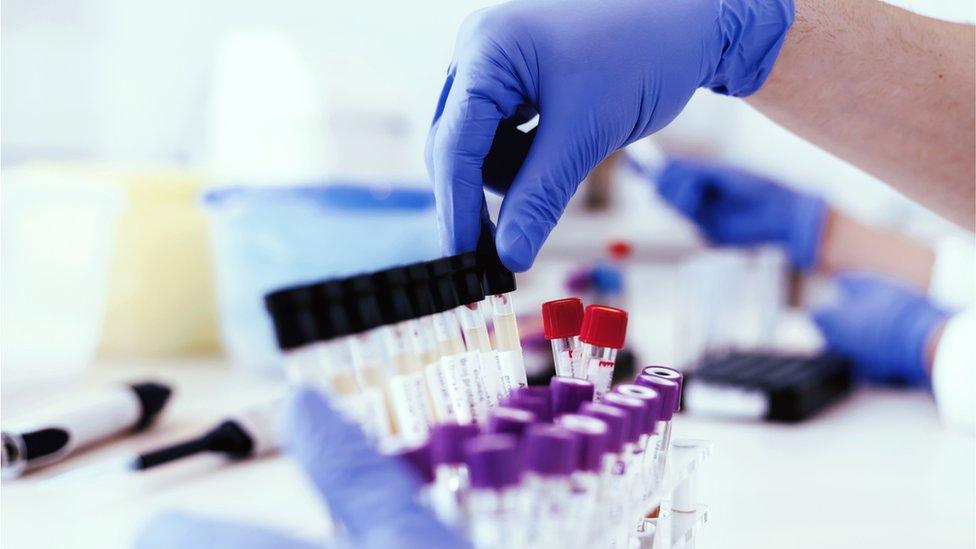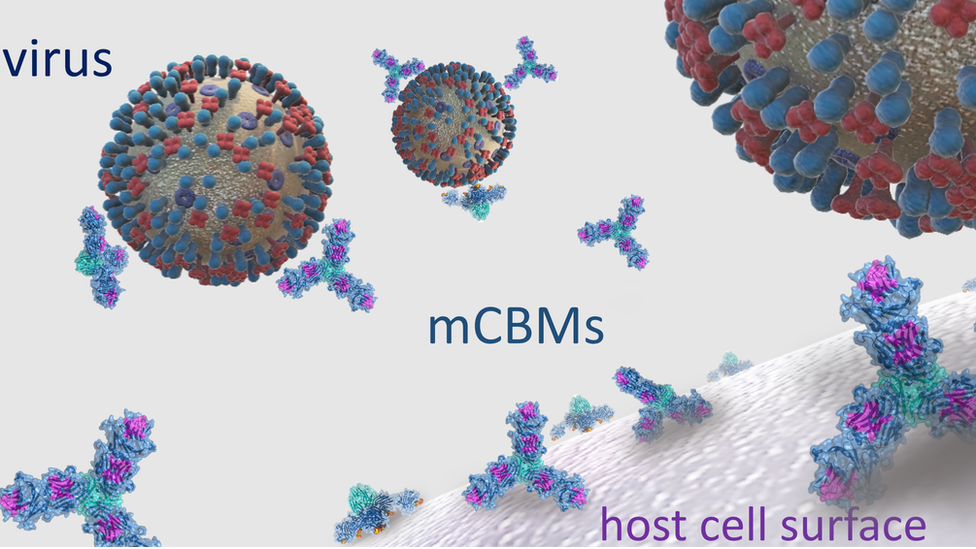Coronavirus: Anti-viral drug has 'positive results' in lab tests
- Published

Scientists have been trying to prevent the virus from attacking the lungs
Scientists hope to begin clinical tests of a new drug that they say has had "positive results" in laboratory tests against Covid-19.
It follows laboratory-based studies by the University of St Andrews spin-out company, Pneumagen, into preventing coronavirus infections.
These studies included the Sars-CoV-2 infection, which is the cause of Covid-19.
The successful studies involved both treating and blocking infection.
The Pneumagen team used the anti-viral drug Neumifil and Carbohydrate Binding Modules (mCBMs) to block the Sars-CoV-2 virus from getting into lung cells.
Working with Public Health England and, separately, the University of Glasgow's Centre for Virus Research, Pneumagen tested its mCBMs against coronaviruses using plaque reduction tests.
Universal treatment
The mCBMs were found to reduce the number of Sars-CoV-2 plaques - visible structures in a sheet of cells - when they were used in both prevention and treatment of infection.
Pneumagen chief executive Douglas Thomson said the positive results from the three studies showed there was the potential to prevent and treat infection.

The drug blocks the Sars-CoV-2 virus' access to lung cells
"Our goal is now to rapidly begin clinical testing for the prevention and treatment of Covid-19," he said
The Pneumagen tests were carried out using "glycan binding" to tackle respiratory tract infections.
A glycan is a generic name for a carbohydrate complex, made up from connected carbohydrate, or sugar, molecules.
Cells are coated in glycans, as are the surfaces of many animal viruses such as Sars-CoV-2.
Neumifil is already being developed for the universal treatment of respiratory tract infections, including the flu, Respiratory Syncytial Virus, and now coronaviruses.